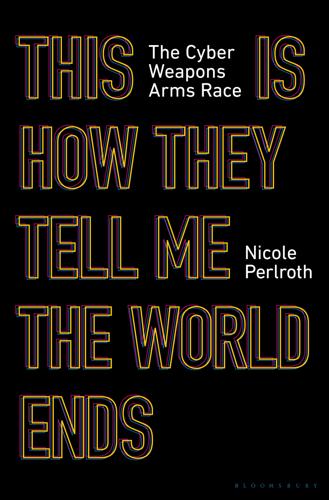David Vincenzetti
2 results back to index

pages: 350 words: 115,802
Pegasus: How a Spy in Your Pocket Threatens the End of Privacy, Dignity, and Democracy by Laurent Richard, Sandrine Rigaud
activist lawyer, Airbnb, Amazon Web Services, centre right, Charlie Hebdo massacre, Chelsea Manning, citizen journalism, Citizen Lab, corporate governance, COVID-19, David Vincenzetti, Donald Trump, double helix, Edward Snowden, food desert, Jeff Bezos, Julian Assange, Kevin Kelly, knowledge worker, lockdown, Mohammed Bouazizi, NSO Group, offshore financial centre, operational security, Stuxnet, Tim Cook: Apple, unit 8200, WikiLeaks, Yom Kippur War, zero day
He was fluent in Spanish, had lived in Mexico off and on for almost ten years, and had contacts in high places. Antonio’s offer to make introductions to family friends among the local officialdom, like the head of security in one Mexican state and the head of a European consulate in another, drew a personal shout-out from the company CEO back in Milan. “You are on the team!” wrote David Vincenzetti. This was an especially welcome note because Vincenzetti was something of a legend in the cybercommunity, a hacker’s hacker, a self-styled cypherpunk who had helped develop and perfect the cryptography that served as the early bulwark of privacy on the internet. Vincenzetti had been a partner in three successful cybersecurity firms before he was thirty-five, and then turned to cybersurveillance.
…
A way to monitor bad actors on the internet as they coordinated potentially deadly plots. “Privacy is very important,” Vincenzetti would say, “but national security is much more important.” National security professionals agreed! Ten years in, Vincenzetti had made Hacking Team the premier private cybersurveillance vendor in the world. David Vincenzetti looked the part of predator, lean and alert, with a hint of wiry sinew beneath his slim-fit designer suits, like a hunter who could stalk for days before striking. Vincenzetti claimed to rise at 3 a.m. most days so he could get in a little exercise before he started his workday. He carried himself with the air of a winner but also of a prodigy, and a seer.
…
On that day, instead, a memo went out to the Hacking Team announcing Antonio’s departure from the company. They wished him “all the best for his future career” but had already put in the works a nondisclosure agreement for his signature. Yeah, you can leave, kiddo, but keep your trap shut. * * * DAVID VINCENZETTI AND his management team adhered to the simple and straightforward economic formula that prevails in business these days: a corporation’s sole purpose is to maximize shareholder profits. Period. Ethical worries were beside the point. When one of Hacking Team’s exploit developers suggested that perhaps they should be more careful about vetting their end users, a company executive shut him down.

pages: 651 words: 186,130
This Is How They Tell Me the World Ends: The Cyberweapons Arms Race by Nicole Perlroth
4chan, active measures, activist lawyer, air gap, Airbnb, Albert Einstein, Apollo 11, barriers to entry, Benchmark Capital, Bernie Sanders, Big Tech, bitcoin, Black Lives Matter, blood diamond, Boeing 737 MAX, Brexit referendum, Brian Krebs, Citizen Lab, cloud computing, commoditize, company town, coronavirus, COVID-19, crony capitalism, crowdsourcing, cryptocurrency, dark matter, David Vincenzetti, defense in depth, digital rights, disinformation, don't be evil, Donald Trump, driverless car, drone strike, dual-use technology, Edward Snowden, end-to-end encryption, failed state, fake news, false flag, Ferguson, Missouri, Firefox, gender pay gap, George Floyd, global pandemic, global supply chain, Hacker News, index card, information security, Internet of things, invisible hand, Jacob Appelbaum, Jeff Bezos, John Markoff, Ken Thompson, Kevin Roose, Laura Poitras, lockdown, Marc Andreessen, Mark Zuckerberg, mass immigration, Menlo Park, MITM: man-in-the-middle, moral hazard, Morris worm, move fast and break things, mutually assured destruction, natural language processing, NSO Group, off-the-grid, offshore financial centre, open borders, operational security, Parler "social media", pirate software, purchasing power parity, race to the bottom, RAND corporation, ransomware, Reflections on Trusting Trust, rolodex, Rubik’s Cube, Russian election interference, Sand Hill Road, Seymour Hersh, Sheryl Sandberg, side project, Silicon Valley, Skype, smart cities, smart grid, South China Sea, Steve Ballmer, Steve Bannon, Steve Jobs, Steven Levy, Stuxnet, supply-chain attack, TED Talk, the long tail, the scientific method, TikTok, Tim Cook: Apple, undersea cable, unit 8200, uranium enrichment, web application, WikiLeaks, zero day, Zimmermann PGP
Though Hacking Team billed its tools as “untraceable,” Citizen Lab’s researchers were able to reverse-engineer and trace its spyware back to servers located in dictatorships around the world. This wasn’t data buried on some website. I’d covered the discoveries on the front pages of the Times. And I’d always made a point to reach out to Hacking Team’s Italian executives for comment. The company’s chief executive, David Vincenzetti, was emphatic that Hacking Team went to “great lengths” to ensure that its spyware was used only for criminal and terrorism investigations and never sold to governments “blacklisted by European countries, the U.S., NATO or any repressive regimes for that matter.” Vincenzetti said his firm had even set up a board—comprised of engineers and human rights lawyers—with veto power over any sale.